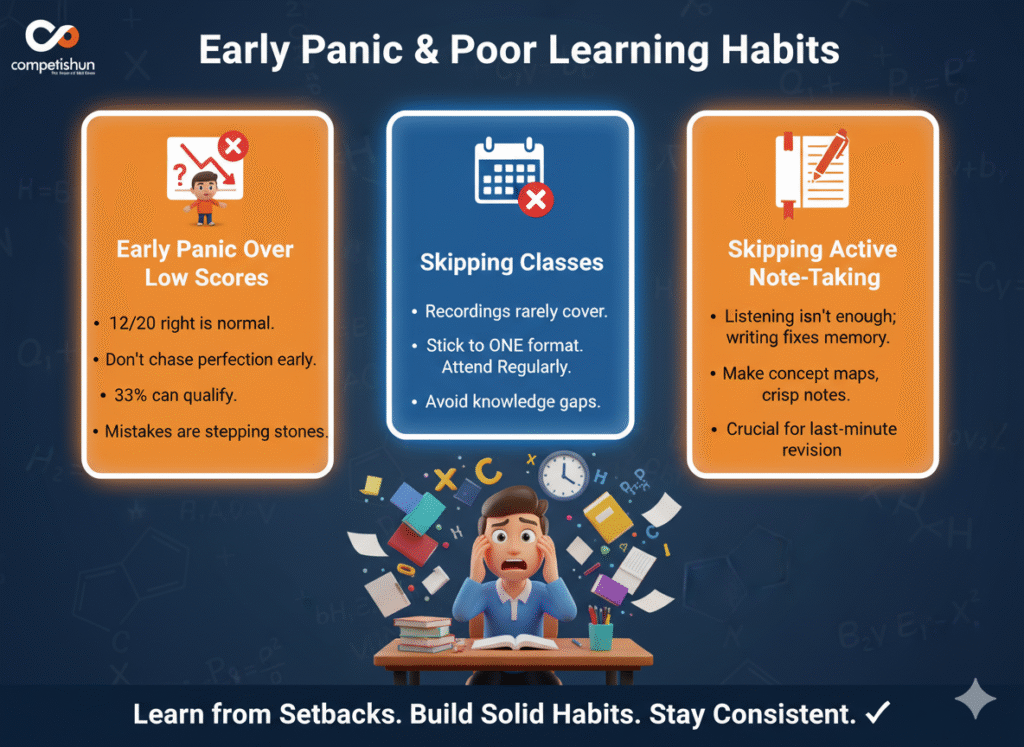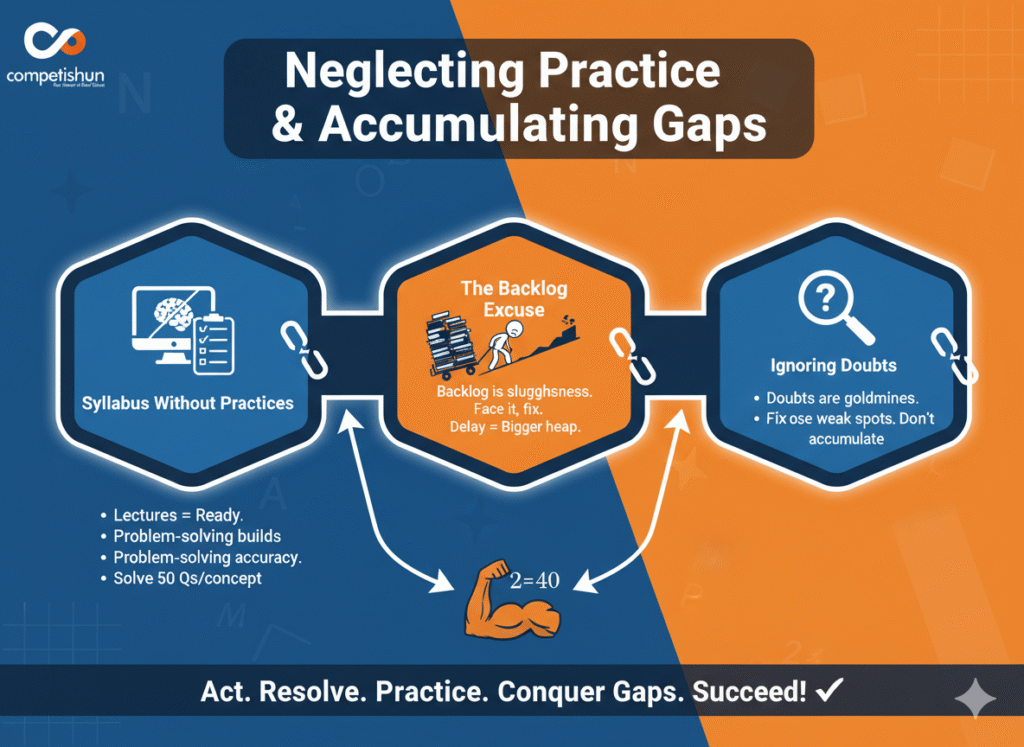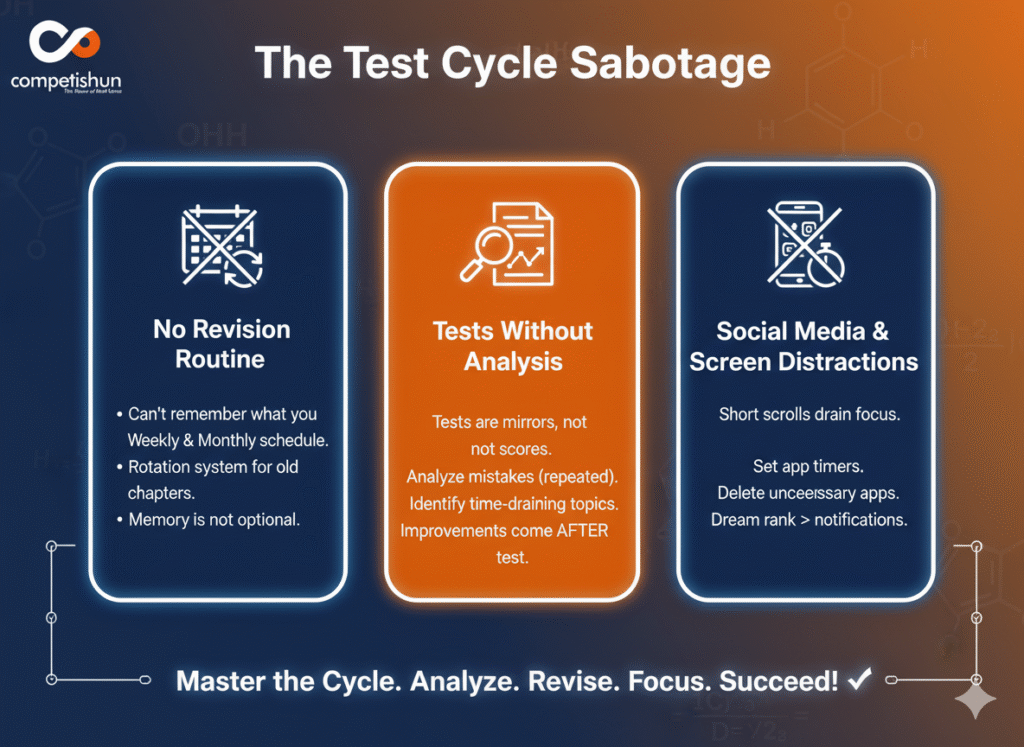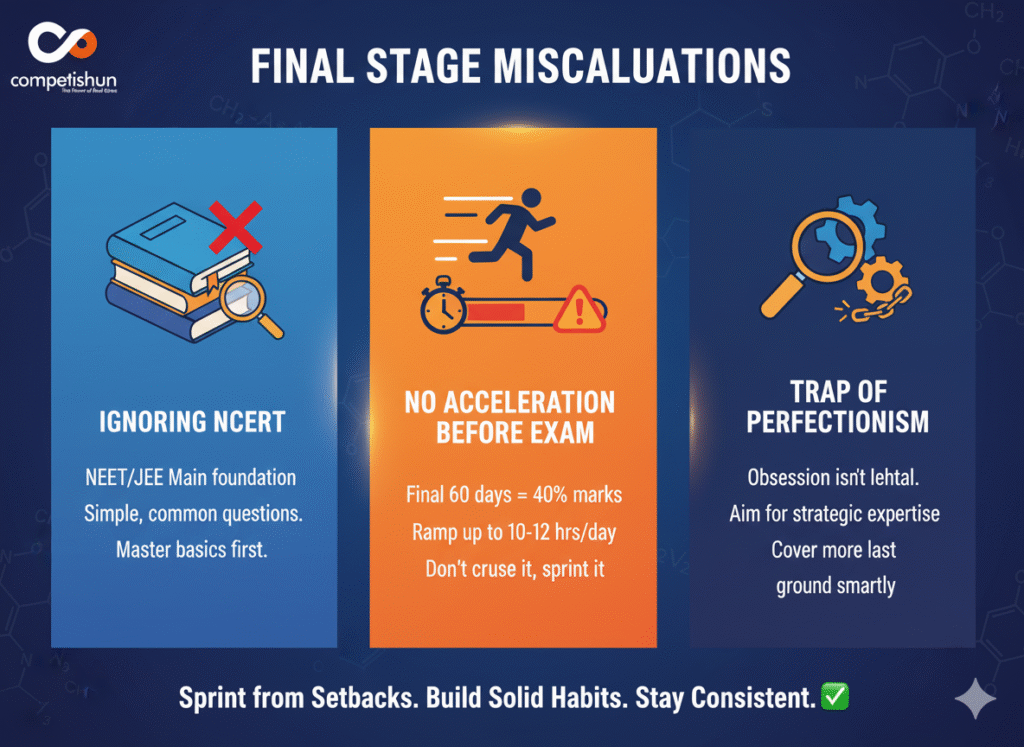Early Preparation
Underestimating the competition and the exam’s toughness
Many students start the prep thinking, ‘it’s just another exam’. It is a big mistake that aspirants generally make. JEE and NEET demand gravel, not casual efforts. Millions compete and only a few thousand shine. The sooner you respect the exam scale, the faster you will align your energy with what it truly takes.
Overconfidence after class 10

Scoring 95% in boards doesn’t mean you are ready for JEE physics or NEET biology. The game changes here. Many bright students start slow because they rely on past glory instead of new discipline. Success begins with good discipline and reinvention.
High Dreams, Low Work
Aiming for IIT Bombay or AIIMS Delhi, but pairing that with lazy study hours. This creates a disaster. When expectations skyrocket, but daily work doesn’t show so much of dedication, that’s when frustration hits. Match the dream with the grind hour by hour and topic by topic.
The Early Panic Cycle and Poor Learning Habits
Early Panic Over Low Scores
Solving 20 problems and getting only 12 right? That’s normal. Most aspirants quit early because they chase perfection from the first day. Remember, even a 33% score can qualify you. Focus on getting better, not fearing. Mistakes are stepping stones, not red flags.

Skipping Classes
You think that class recordings will help to cover later, but that rarely does. Stick to that one format and attend the classes regularly. Missed classes accumulate quickly, creating knowledge gaps that are difficult to fill later.
Skipping Active Note-Taking
Listening isn’t enough; writing fixes ideas in the memory. Whether you are online or offline, maintain concept maps, short summaries, crisp notes, and formulas. These will save you in your final 30 days of revision.
Neglecting Practice and Accumulating Gaps
Syllabus Without Practices
Just watching lectures doesn’t make you ready for exams. Problem-solving builds accuracy, memory, and speed. The aspirants don’t know a concept until they have solved 50 problems based on it.

The Backlog Excuse
A few aspirants who call their backlog a system failure are covering up their sluggishness. Face it, fix it, and move forward. Every week you delay, the heap grows higher.
Ignoring Doubts
Doubts are goldmines. Each unsolved question exposes your weak spot. Don’t wait. Check for a solution, watch short concept videos, and ask your teacher or peer about your doubts. Fix it the same day. Don’t let ignorance accumulate. Fix your doubts the same day. Don’t let ignorance accumulate.
The Test Cycle Sabotage
No Revision Routine
You can’t remember what you never reviewed. Schedule weekly and monthly revisions. Create a rotation system so old chapters don’t fade. Revision cements memory as it is not optional.
Taking Tests Without Analysis
Mock tests are not just scores; they are mirrors. Always analyse what type of mistake is being repeated, where you are losing time and which topics are dropping your accuracy. Improvements start after the test, not before it.

Social Media and Screen Distractions
Scrolling for a few minutes through reels after every study block will drain focus. Set app timers. Try deleting unnecessary apps during prep season. Remember, your dopamine belongs to the dream rank, not your notifications.
Final Stage Miscalculations
Ignoring NCERT
Especially for NEET and JEE Main, NCERT is your foundation. Many toppers say, “Read it till you can recite it”. Missing NCERT books means missing the simplest, most common question sources. Start from the basics, such as the NCERT books.
No Acceleration Before the Exam

If you study 6 hours a day in the mid-year, ramp it up to 10–12 hours before the exam. The final 60 days account for 40% of the performance in your exam. Don’t cruise it, sprint it.
The Trap of Perfectionism
“I will move on only after I master this chapter.” Lethal. Competitive exams reward attention, not your obsession. Don’t aim for 100% grasp; aim for strategic expertise. Cover more ground smartly.
Conclusion
Every JEE/NEET failure isn’t caused by bad luck; it’s the accumulation of tiny, preventable mistakes that can be fixed easily. Respect the exam, study smarter, revise often, and guard your focus.
Spot one of these 15 traps — that’s when you wake up and fix the problems fast. The difference between AIR rank 2000 and AIR rank 20000 lies in these very choices.


